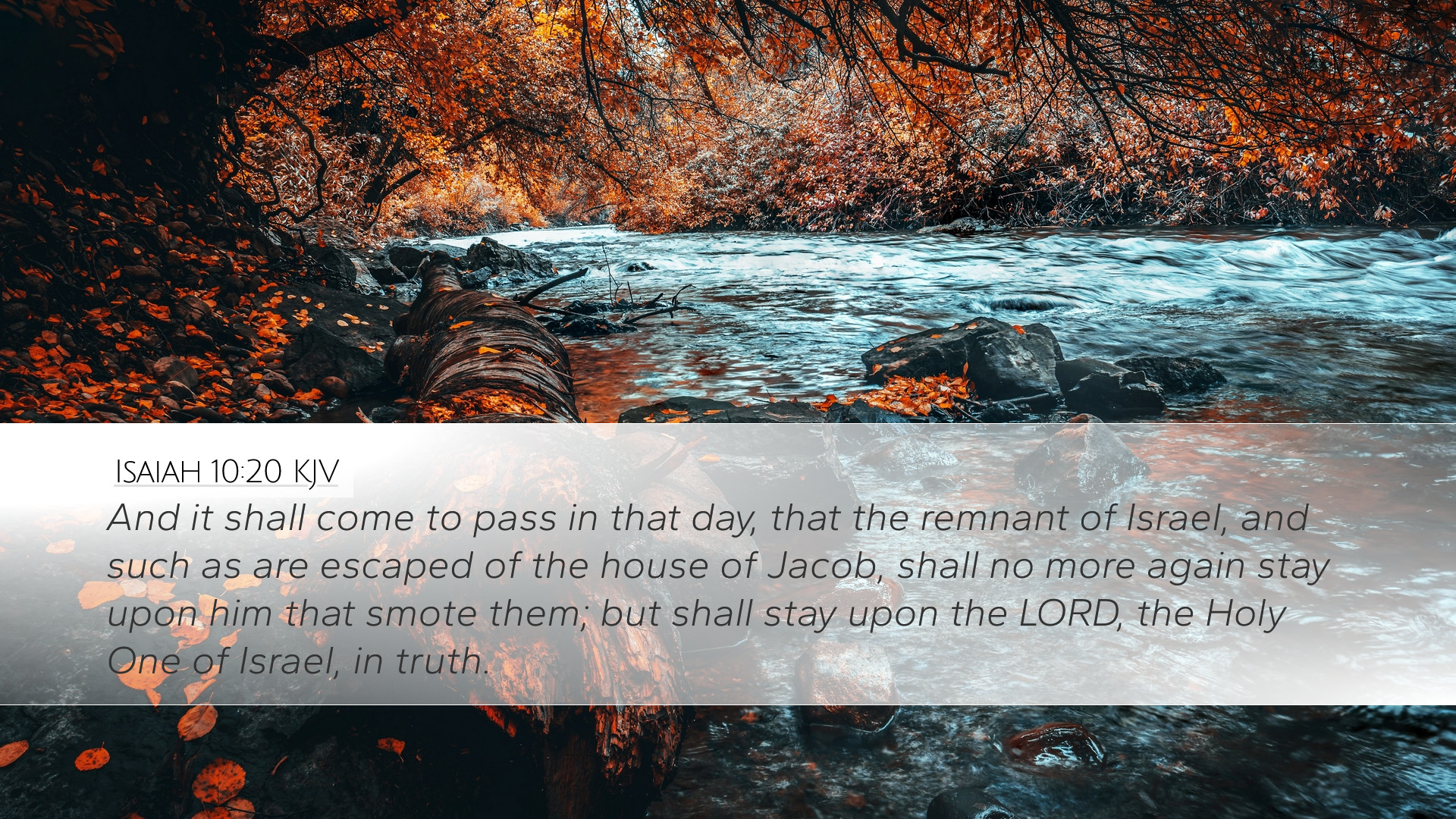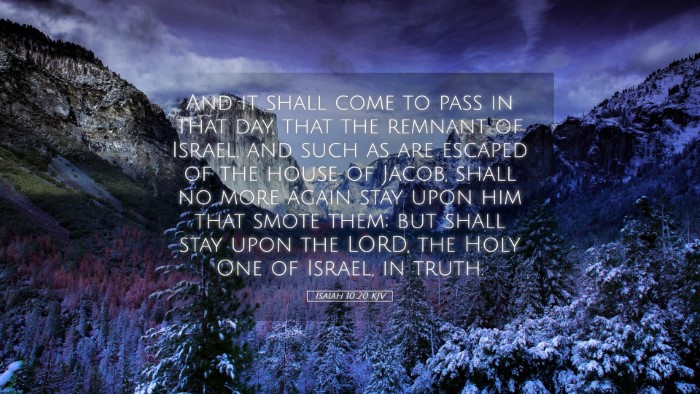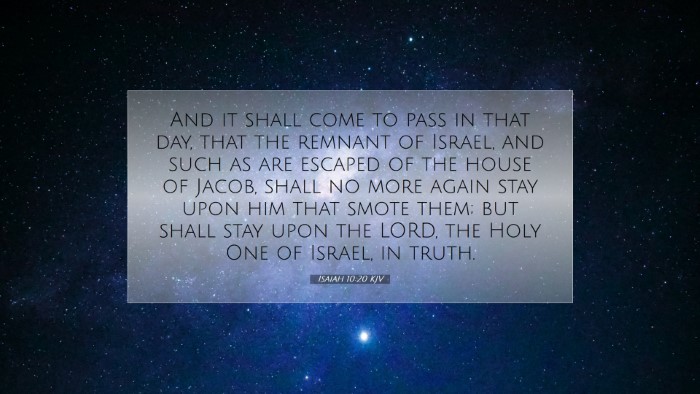Isaiah 10:20 - Commentary and Insights
Isaiah 10:20 states:
"And it shall come to pass in that day, that the remnant of Israel, and such as are escaped of the house of Jacob, shall no more stay upon him that smote them; but shall stay upon the LORD, the Holy One of Israel, in truth."
Contextual Overview
This verse falls within a larger prophetic narrative within the Book of Isaiah. It addresses the fate of Israel amidst the Assyrian threat. The previous chapters depict God’s judgment upon Israel through Assyria, whom He used as an instrument of correction.
Understanding the "Remnant"
The concept of the "remnant" is significant in Isaiah's writings. It represents a faithful group that survives God’s judgment.
- Matthew Henry emphasizes that God preserves a remnant for His glory. Those who escape the judgment are not merely spared; they constitute a group that is restored and refined.
- Albert Barnes elaborates that the remnant represents those who, having suffered under oppression, turn away from earthly reliance and seek solace in God.
- Adam Clarke adds that this remnant will return to a state of reliance on God, illustrating a shift from desolation to hope.
The Call to Dependence on the LORD
The latter part of this verse highlights a key theological theme: reliance on God rather than on human powers or systems.
- Matthew Henry remarks that Israel will cease to trust in those who oppressed them, echoing the lesson that true restoration comes through faith in the divine.
- Albert Barnes suggests that the transition in dependence signifies a spiritual awakening and reformation among the people.
- Adam Clarke notes that this reliance is depicted as being upon “the Holy One of Israel,” emphasizing God's sanctity and power as a source of truth.
Interpretation of "the Holy One of Israel"
The phrase “the Holy One of Israel” is a title that underscores God's transcendence and moral purity.
- Matthew Henry points out that this designation reminds Israel of their covenant relationship with God, reinforcing His unchanging holiness in the midst of their turmoil.
- Albert Barnes interprets this title as a reminder of God's presence and faithfulness even when the circumstances suggest otherwise.
- Adam Clarke conveys that it is not merely a title, but a statement of God’s involvement and commitment to His people during their dire straits.
Lessons for Today's Believers
This verse resonates beyond its historical context, offering timeless lessons for believers today:
- The Power of Remnant Theology: Just as God preserved a remnant in Israel, Christians are reminded that God always keeps a faithful group that maintains the truth amidst a world that often strays from it.
- Dependence on God: The cessation of reliance on worldly powers redirected towards trust in God is a vital lesson for today’s believers. In times of difficulty or oppression, they are called to seek refuge in God alone.
- Importance of Truth: The term "in truth" reinforces the significance of sincerity and authenticity in one’s faith. It calls believers to engage in genuine faith rather than superficial or ritualistic practices.
Conclusion
Isaiah 10:20 encapsulates a profound message of hope and restoration, highlighting the transition from despair to faith. For pastors, students, and theologians, this passage serves as a reminder of God's sovereignty amid chaos. It encourages a return to dependence on "the Holy One of Israel," cementing the truth that in times of distress, genuine refuge and restoration are found only in God.


